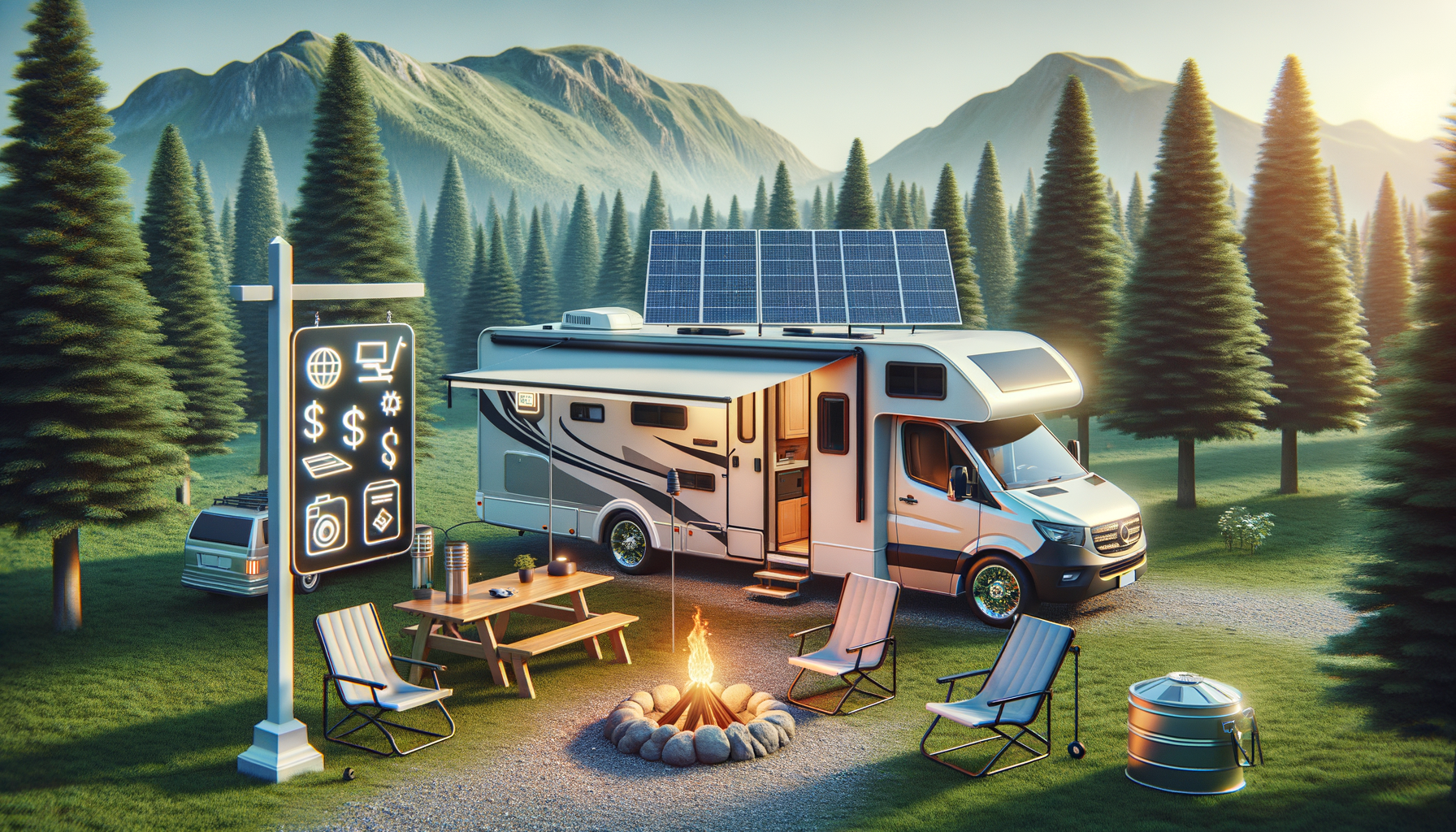Introduction to RV Campers
Recreational vehicles, commonly referred to as RV campers, have become a symbol of adventure and freedom. They offer a unique blend of mobility and comfort, allowing travelers to explore diverse landscapes without sacrificing the comforts of home. Whether you are planning a cross-country road trip or looking for a temporary residence, an RV camper can be an ideal solution. This section explores the different types of RV campers available and what makes them a popular choice among travel enthusiasts.
RV campers come in various styles and sizes, catering to different needs and preferences. Some of the most common types include:
- Class A Motorhomes: These are the largest and most luxurious, often equipped with full kitchens, bathrooms, and even living areas.
- Class B Motorhomes: Also known as camper vans, these are more compact and easier to maneuver, making them suitable for solo travelers or couples.
- Class C Motorhomes: A middle ground between Class A and B, these offer a good balance of space and convenience.
- Travel Trailers: These are towable units that can be detached at a campsite, allowing the towing vehicle to be used independently.
- Fifth Wheels: Similar to travel trailers but with a raised forward section, these require a special hitch mounted in the bed of a truck.
The appeal of RV campers lies in their ability to provide a home-like environment while on the road. Features such as expandable living spaces, modern appliances, and entertainment systems enhance the travel experience. Moreover, the flexibility to change locations at a moment’s notice makes RV campers a favorite among those who crave adventure.
Exploring Zero Down RV Financing for Bad Credit
Purchasing an RV can be a significant financial commitment, and for individuals with bad credit, securing financing can be challenging. However, zero down RV financing options are available, offering a pathway to ownership without the need for a substantial upfront payment. This section delves into the intricacies of obtaining zero down RV financing for those with less-than-perfect credit scores.
Zero down financing allows buyers to acquire an RV without an initial down payment. This can be particularly appealing for those who have limited savings or wish to preserve their cash reserves. However, it is essential to understand that while the upfront costs are minimized, other financial obligations remain, including monthly payments and interest rates.
For individuals with bad credit, lenders may offer specialized financing programs. These programs often come with higher interest rates to offset the risk associated with lending to those with lower credit scores. Here are some strategies to improve your chances of securing zero down financing:
- Improve Your Credit Score: Before applying for financing, take steps to enhance your credit score by paying down existing debts and ensuring timely payments on all accounts.
- Research Lenders: Look for lenders who specialize in RV financing for individuals with bad credit. These lenders may offer more flexible terms and conditions.
- Consider a Co-Signer: Having a co-signer with a strong credit history can increase your chances of approval and potentially secure better interest rates.
- Negotiate Terms: Don’t hesitate to negotiate the terms of your loan, including interest rates and repayment periods, to achieve a more favorable agreement.
While zero down RV financing can make RV ownership accessible, it is crucial to carefully evaluate the long-term financial implications and ensure that the monthly payments fit within your budget.
Buying an RV to Live In: A Lifestyle Choice
For many, the idea of living in an RV full-time is a dream come true. The allure of minimalism, freedom, and the ability to travel at will are powerful motivators for those considering this lifestyle. However, buying an RV to live in requires careful planning and consideration to ensure it meets both personal and practical needs.
Living in an RV offers numerous benefits, including:
- Mobility: The freedom to relocate whenever desired is a significant advantage, allowing residents to chase good weather or explore new destinations.
- Cost-Effectiveness: While the initial purchase of an RV can be substantial, ongoing living costs such as campground fees, maintenance, and fuel are often lower than traditional housing expenses.
- Minimalist Lifestyle: Embracing a minimalist lifestyle can lead to a more fulfilling life with less focus on material possessions.
However, transitioning to full-time RV living is not without its challenges. Prospective buyers should consider the following:
- Space Constraints: RVs offer limited living space, requiring thoughtful organization and prioritization of belongings.
- Maintenance Needs: Regular maintenance is essential to keep the RV in good condition, which can be time-consuming and costly.
- Connectivity: Ensuring reliable internet and phone connections is crucial for those who work remotely or need to stay in touch with family and friends.
- Legal Considerations: Understanding local laws and regulations regarding full-time RV living is vital to avoid legal issues.
Ultimately, buying an RV to live in is a personal decision that should align with one’s lifestyle goals and financial situation. Thorough research and planning can lead to a rewarding and adventurous life on the road.
Top Considerations When Purchasing a Used RV
Opting to purchase a used RV can be a cost-effective way to enter the world of RV ownership. However, it requires careful consideration and due diligence to ensure that the vehicle meets your needs and is in good condition. This section outlines the key factors to consider when buying a used RV.
One of the primary advantages of buying a used RV is the potential for significant savings compared to purchasing new. However, to make a wise investment, consider the following:
- Inspection: Conduct a thorough inspection of the RV to identify any signs of wear and tear, water damage, or mechanical issues. Hiring a professional inspector can provide peace of mind.
- Service History: Request the maintenance records to understand the vehicle’s history and ensure it has been well-cared for.
- Test Drive: Take the RV for a test drive to assess its handling, performance, and comfort. Pay attention to any unusual noises or vibrations.
- Age and Mileage: Consider the age and mileage of the RV, as these factors can impact its longevity and resale value.
- Price Negotiation: Be prepared to negotiate the price based on your findings during the inspection and any necessary repairs.
Purchasing a used RV can be a rewarding experience, offering the opportunity to enjoy the RV lifestyle without the hefty price tag of a new model. By taking the time to research and inspect potential purchases, buyers can find a well-maintained RV that fits their budget and lifestyle.
Conclusion: Embracing the RV Lifestyle
Embracing the RV lifestyle is a journey filled with opportunities for adventure, exploration, and personal growth. Whether you’re interested in purchasing an RV camper for leisure travel, exploring zero down RV financing with bad credit, or considering buying an RV to live in full-time, this guide has provided valuable insights to help you make informed decisions.
The freedom and flexibility offered by RV ownership are unmatched, allowing individuals to create a life on their terms. However, it is essential to approach this lifestyle with careful planning and consideration to ensure that it aligns with your personal and financial goals.
As you embark on this exciting journey, remember to research thoroughly, assess your needs, and make informed choices that will lead to a fulfilling and enjoyable RV experience. Happy travels!




Leave a Reply